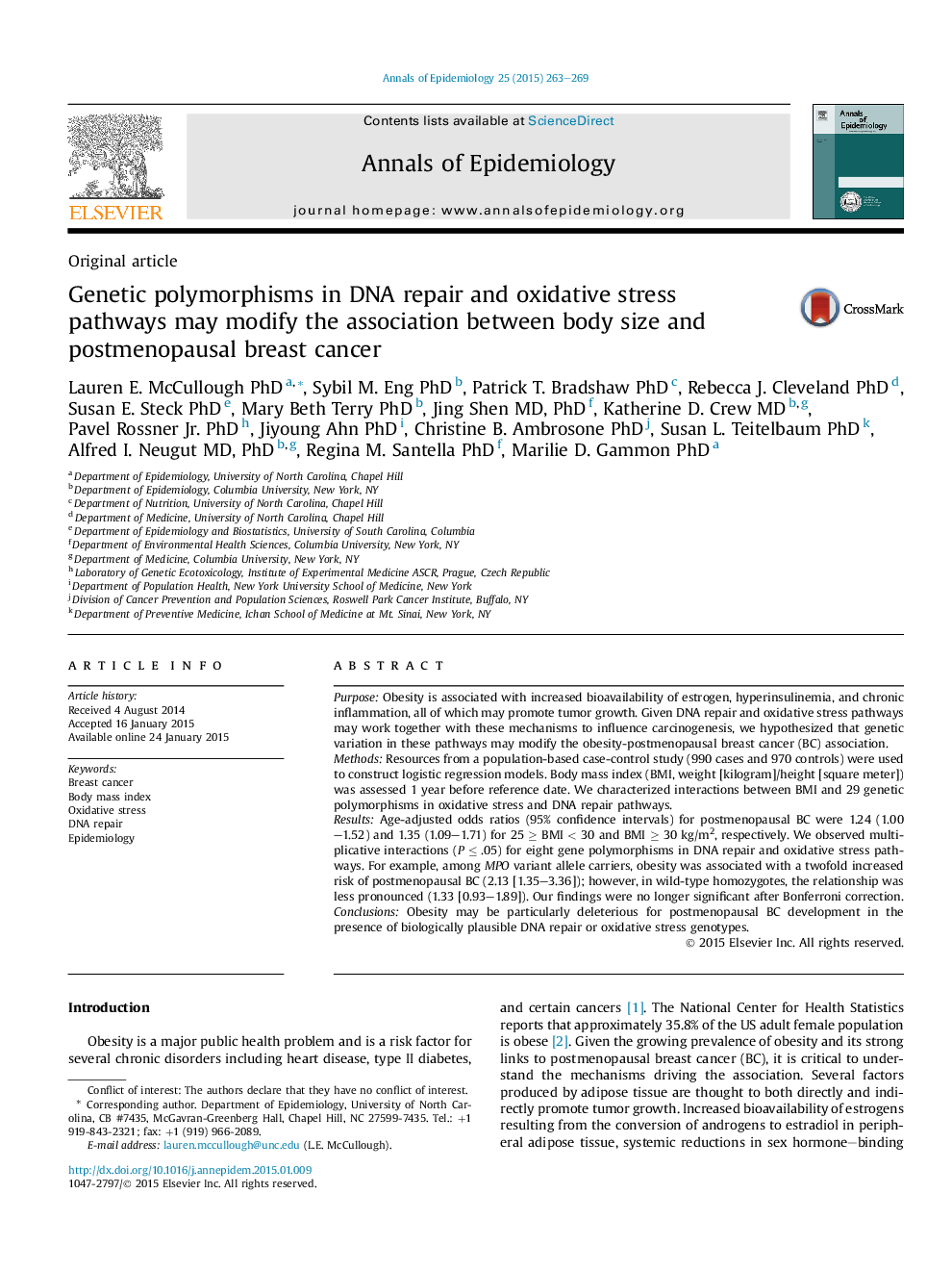| Article ID | Journal | Published Year | Pages | File Type |
|---|---|---|---|---|
| 3443893 | Annals of Epidemiology | 2015 | 7 Pages |
PurposeObesity is associated with increased bioavailability of estrogen, hyperinsulinemia, and chronic inflammation, all of which may promote tumor growth. Given DNA repair and oxidative stress pathways may work together with these mechanisms to influence carcinogenesis, we hypothesized that genetic variation in these pathways may modify the obesity-postmenopausal breast cancer (BC) association.MethodsResources from a population-based case-control study (990 cases and 970 controls) were used to construct logistic regression models. Body mass index (BMI, weight [kilogram]/height [square meter]) was assessed 1 year before reference date. We characterized interactions between BMI and 29 genetic polymorphisms in oxidative stress and DNA repair pathways.ResultsAge-adjusted odds ratios (95% confidence intervals) for postmenopausal BC were 1.24 (1.00–1.52) and 1.35 (1.09–1.71) for 25 ≥ BMI < 30 and BMI ≥ 30 kg/m2, respectively. We observed multiplicative interactions (P ≤ .05) for eight gene polymorphisms in DNA repair and oxidative stress pathways. For example, among MPO variant allele carriers, obesity was associated with a twofold increased risk of postmenopausal BC (2.13 [1.35–3.36]); however, in wild-type homozygotes, the relationship was less pronounced (1.33 [0.93–1.89]). Our findings were no longer significant after Bonferroni correction.ConclusionsObesity may be particularly deleterious for postmenopausal BC development in the presence of biologically plausible DNA repair or oxidative stress genotypes.
